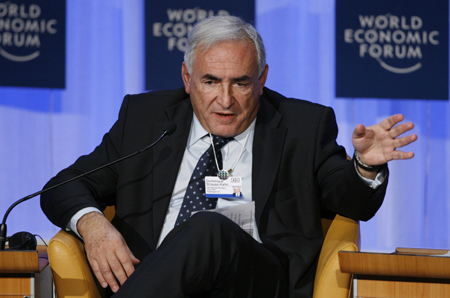Serious slowdown predicted for US economy
Updated: 2008-01-27 09:17
DAVOS - Serious slowdown, though not recession, was predicted for the US economy on Saturday as political and business leaders were ready to wrap up their annual gathering at the Swiss skiing resort of Davos.
The World Economic Forum, which was kicked off here Wednesday, was clouded this year by mounting concern over the US economic outlook in the aftermath of the sub-prime mortgage market crisis, with some economists even warning the US economy is headed for a recession.
Strauss-Kahn said the IMF was scheduled to update its economic forecasts next week, which is certain to have a lower growth figure for the United States.
IMF spokesman Masood Ahmed told reporters Friday that they saw a period of below-potential economic growth for the United States, saying the recent sharp interest rate cut by the US Federal Reserve was appropriate and helpful.
"We still see a period of below-potential growth as the most likely scenario for the US given the economy's good starting position," Ahmed said.
The IMF's worry was shared by Merrill Lynch Chief Executive John Thain, another panelist of the discussion.
Thain said housing prices in the United States, which fell 7 percent year on year in 2007, are expected to fall further this year.
Thain also feared the current problem in the credit market was spreading to consumer credit sector.
Credit cards, home equity loans and auto receivables are the next vulnerable areas, he noted.
"It's going to be a while before we see a return to normalcy inthe banking or credit markets in the US," he said.
Thain said he supports the US Federal Reserve's decision to cut interest rates and the government's economic stimulus package, but said these measures would not keep house prices from falling.
|
|
|
||
|
||
|
|
|
|







